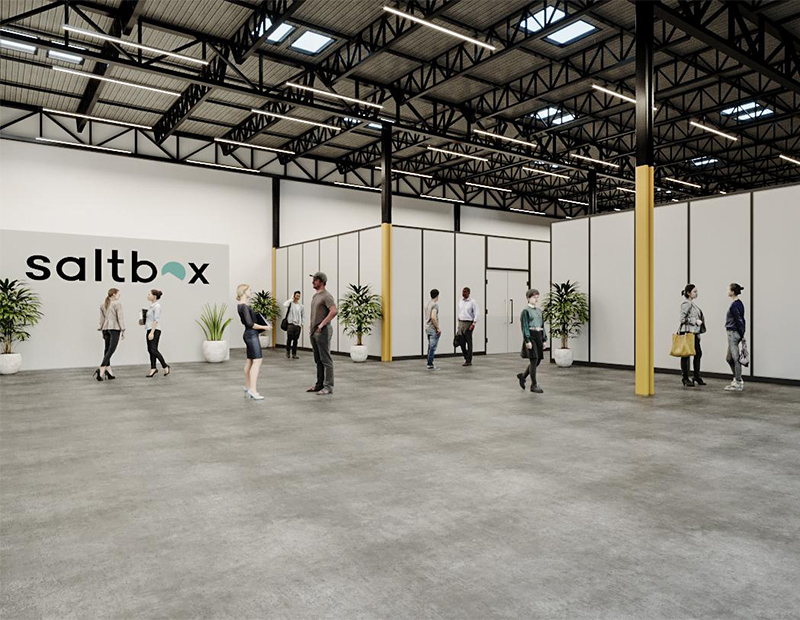Saltbox to Debut Novel Shared Workspace Concept in Atlanta
The new startup, which has just closed a round of venture funding, will open its first co-warehousing location in November.
The shared workspace sector continues to expand and evolve, and Saltbox Inc. is playing a role in the transformation. The new startup has just announced its first location, a 27,000-square-foot facility to open in Atlanta, providing a combination of coworking and co-warehousing space for what it calls the “concrete class.”
READ ALSO: Regus Renews, Expands Leases on Long Island
Saltbox’s customer base, the concrete class, encompasses such commercial-space dwellers as importers and exporters, distributors and e-commerce operators—essentially any business that needs office space for administrative work as well as relatively minor warehouse square footage for storage and the like. Saltbox’s inaugural offering will open in the Upper Westside area at 1345 Seaboard Industrial Blvd. N.W. “We felt that Atlanta’s Upper Westside represented the perfect location for the first Saltbox development. Being a transitional industrial area, there remain industrial buildings that could accommodate our functional needs and yet still allow our members to be just minutes away from some of the most exciting parts of town,” Tyler Scriven, co-founder & CEO of Saltbox, told Commercial Property Executive. “As such, this location truly represents what Saltbox is all about—eliminating the historical tradeoff between functionality and comfort and convenience.”
In addition to turnkey office coworking space, Saltbox’s Atlanta location will provide warehouse suites ranging in size from 200 to 2,000 square feet and featuring the requisite amenities commonly found at traditional warehouse properties, including loading dock access, a temperature-controlled environment and commercial freight and mail service. Warehouse equipment, a photography stage, conference rooms and common areas are part of the facility’s list of conveniences. Saltbox is scheduled to open the location in November 2019, offering members the same flexible lease terms that are the backbone of the shared-workspace industry.
Investors on the bandwagon
Along with revealing plans for its first location, Saltbox announced that it recently closed its first round of venture capital financing, raising $3.2 million. Village Global led the funding round, which included MetaProp, Arena Ventures, Kapor Capital and various angel investors. Scriven, who shares the title of co-founder with Paul D’Arrigo, Maxwell Bonnie and Chetan Sharma, attributes the successful capital raise in part to the founding members’ strong cumulative backgrounds in e-commerce operations, logistics and technology. “I’ve been fortunate to have assembled a stellar team of co-founders with prior experience building companies and leading teams through hyper-growth. There are few things that matter more to early stage venture capital investors than the strength and experience of the founding team,” he noted.
Additionally, Scriven believes participants in the round were taken with the distinctive premise of the company, or rather, the problem it is designed to solve—Saltbox endeavors to help fill the void in flexible office-warehouse space, which is something a great percentage of product-based business entrepreneurs require. “We’re only at the beginning of our journey, but I believe that our investors recognized the scale of the opportunity ahead of us,” Scriven said. Saltbox expects to add another location in its hometown of Atlanta and expand its footprint to another city in 2020, before opening numerous sites in the years to follow. “Our growth strategy is to walk then run—very fast,” he added.
Co-warehousing may be in its infancy but ultimately, it may very well have the same impact on the industrial market as coworking is having on the office market. Per a recent report by JLL, the coworking industry, which recorded 10.1 million square feet in leasing activity in the first half of 2019, is positioned to become the leading driver of office leasing in the U.S., toppling the tech sector, which logged 10.7 million square feet in leasing in the first six months of the year.









You must be logged in to post a comment.